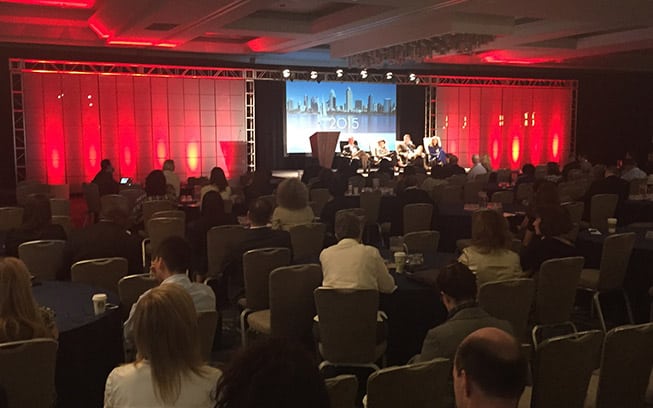SAN DIEGO – A panel of prominent airport directors Wednesday called on Congress to make transformational changes to the industry’s funding system and at the same time expressed doubt that such alterations will actually take place.
Gina Marie Lindsey, airport director at Los Angeles World Airports; Mark VanLoh, director of aviation at Kansas City International (MCI) and Bonnie Allin, CEO at Tucson International (TUS) each indicated that airports would benefit from having more local control of the capital projects they pursue and added that many would be willing to forego federal grants in exchange for an increase to the passenger facility charge, one of the main mechanisms for funding such projects.
David Edwards, president and CEO of the Greenville-Spartanburg International (GSP), moderated the panel, which took place during the Airport Revenue News Revenue Conference & Exhibition.
Under the current funding format, which relies heavily on federal regulators determining which projects get funded and at what level, airlines lobby for projects that help in their major markets and against those that don’t, Allin says.
“We need to have local control,” she adds.
VanLoh, who is in the midst of pushing for a new terminal to replace an aging facility in Kansas City, Mo., says a $4 increase to the existing locally collected PFC – from $4.50 to $8.50 – would allow many airports to eliminate the need for federal grants to help with capital projects.
“We want out of that and some of us can get out of that with this PFC increase,” he says.
But Allin, VanLoh and Lindsey all expressed skepticism that Congress can work together enough to create substantial change to the existing funding mechanism, even though several lawmakers have publicly supported the need for a transformational change.
Allin says the need for a federal highway reauthorization at the same time hurts the airport industry’s chances for success. And Lindsey pointed at the last time the Federal Aviation Administration bill needed to be reauthorized, it took lawmakers more than 20 temporary extensions of the existing funding bill before a two-year extension was passed. She indicated that there may be enough momentum to force changes to the way the country’s air traffic control operations are funded and managed, but probably not both.
“Normally I am accused of being a Pollyanna, but I don’t think in this instance I am really positive about getting a transformational change, at least for airports,” she says. “I’m afraid Congress is not going to have enough of an appetite to tackle transformational change to air traffic at the same time they would be tackling transformational change to free the airports from unreasonable federal regulation on its ability to run the operation like a business.”
Edwards indicated that Airports Council International-North America and the American Association of Airport Executives are working together to build a coalition of allies in favor of raising the PFC cap. For more information, he directed attendees to the website: www.airportsunited.com.






